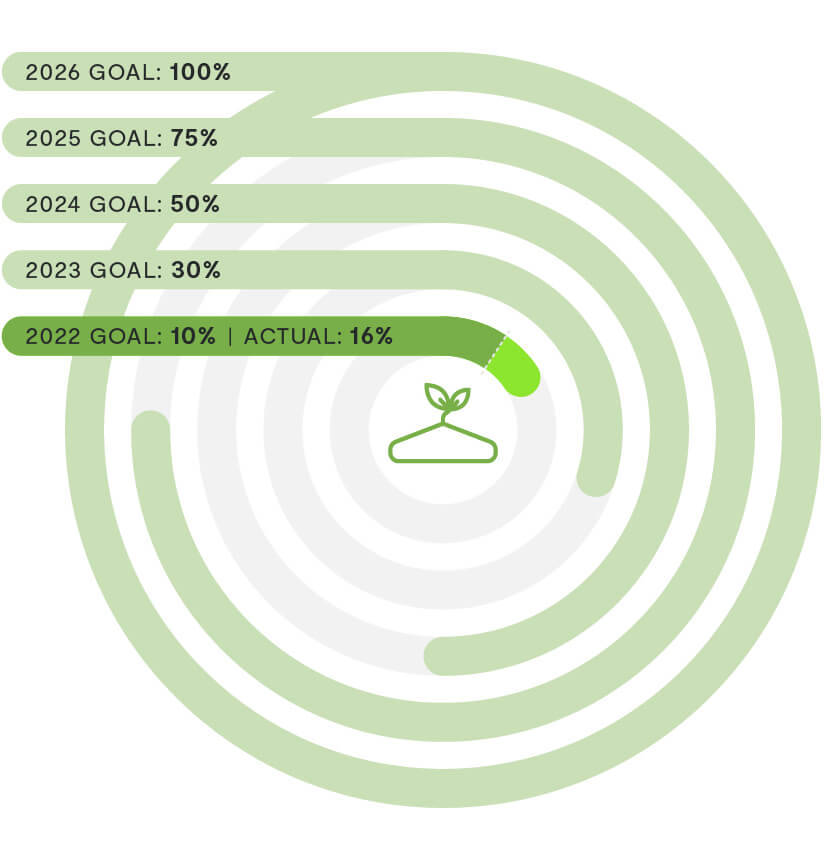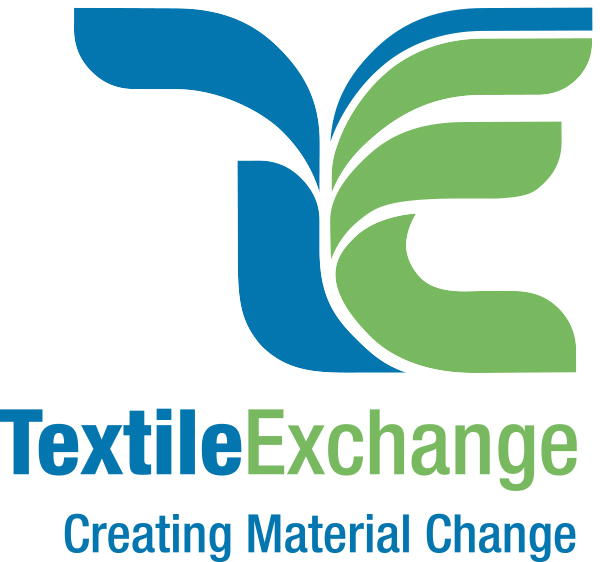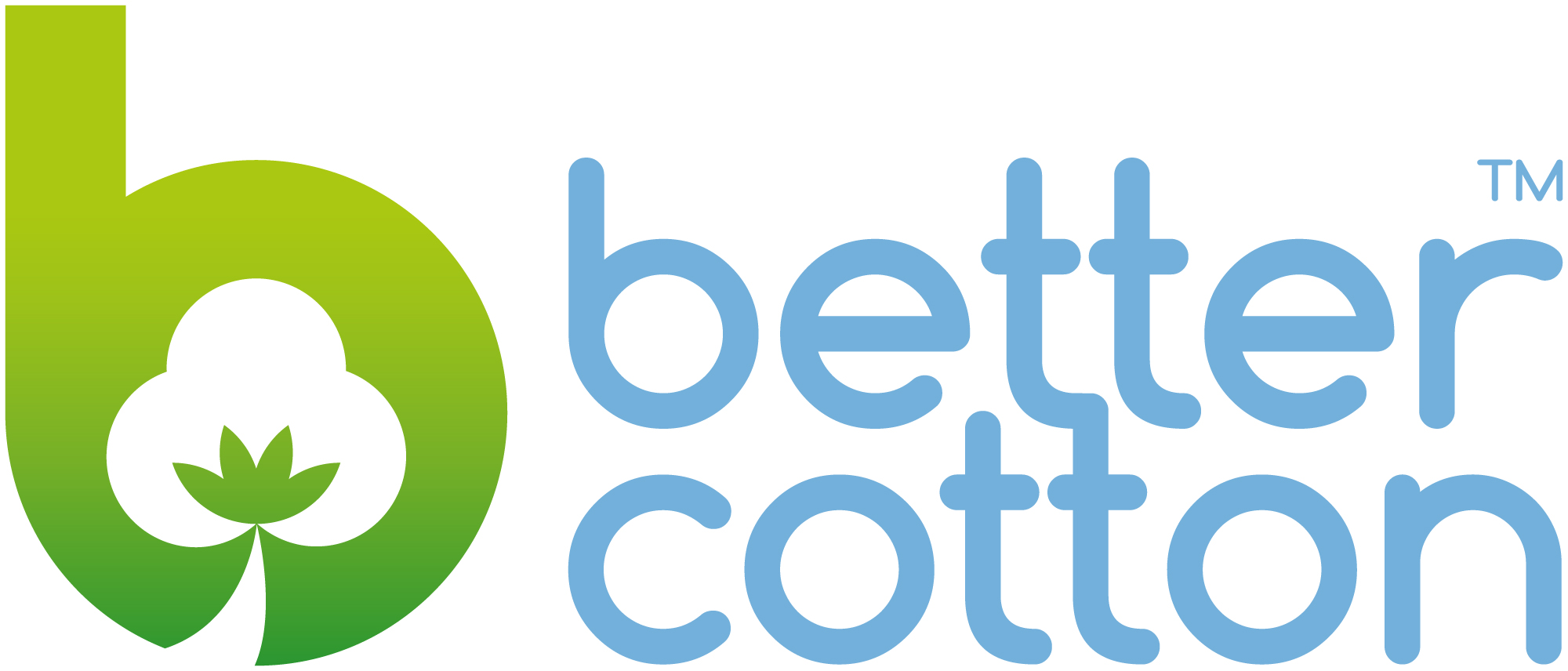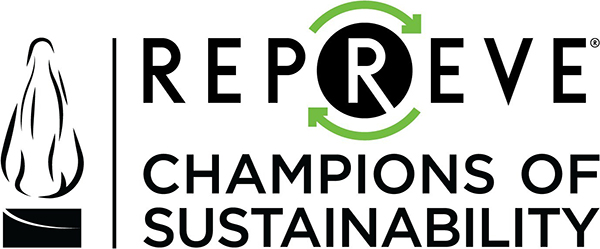
Environmental Sustainability
At JCPenney, our founding principle is The Golden Rule. We believe this applies to our associates, customers, communities and planet.
With The Golden Rule as our guide, we will create a more sustainable future as a responsible corporate citizen and an important part of the retail economy
We’re making investments to drive incremental change while continuing to deliver quality products and services for diverse, working American families.
Sustainable Products
JCPenney is on a mission to design, develop, source and offer customers more sustainable products that our customers love.We have developed a five-year roadmap to use preferred sustainable fibers in 100% of our private label apparel and home products by 2026. Preferred fibers include more sustainably sourced cotton and recycled polyester.

Sustainable Cotton:
Our preferred fiber cotton portfolio includes BCI, Organic Cotton and recycled cotton.
Recycled Polyester:
Our preferred fiber portfolio for polyester includes recycled polyester.
Regenerative Cellulosic:
Our preferred fiber portfolio for regenerative cellulosic includes Tencel and EcoVero.
JCPenney joined Textile Exchange in 2021 to help us select and verify our use of sustainable fiber alternatives, including recycled polyester, BCI and Lenzing fibers. We also participate in Textile Exchange’s Corporate Fiber and Materials Benchmark program, which helped inform our roadmap and preferred fiber goals.
JCPenney is a proud member of the Better Cotton Initiative (BCI), which works directly with farmers to yield more sustainable crops and reduce harmful chemicals. Better Cotton principles and criteria have also been integrated into our preferred fibers roadmap. While Better Cotton is not physically traceable to end products, increasing the demand for Better Cotton by companies like JCPenney encourages more farmers to adopt BCI standards. JCPenney is increasing sustainable practices across the globe and while Better Cotton is not physically traceable to end products, Better Cotton Farmer directly benefit from the demand for Better Cotton in which we source. To learn more about Better Cotton, please visit www.bettercotton.org.
Additionally, our relationship with Unifi has grown each year since we began using their recycled polyester fiber, REPREVE, in 2018. JCPenney was named one of Unifi’s 2020 REPREVE® Champions of Sustainability. Our products were made from the equivalent of more than 18 million recycled bottles, a 28% increase year-over-year, making JCPenney one of 40 brand and retail partners to receive the award.
We have partnered with the Ellen MacArthur Foundation’s Jeans Redesign program to fundamentally tackle the issue of significant waste and pollution in the fashion industry starting with one of the most iconic products: jeans. Offering a set of guidelines to make products in accordance with the principles of a circular economy, Jeans Redesign aims to ensure durability, material health, recyclability and traceability.
Sustainable Manufacturing
JCPenney cares about the safety of our associates, our customers and the workers who make our products. We encourage factories and mills within our supply chain to become OEKO-TEX®-certified to ensure fabrics are free of harmful chemicals. We are also working to implement new chemicals standards in the manufacturing process and encouraging safer chemical alternatives guided by the Zero Discharge of Hazardous Chemicals (ZDHC) Manufacturing Restricted Substances List (MRSL).Carbon Footprint
Energy conservation and responsible environmental stewardship are core principles of JCPenney’s operations. We have been awarded the 2022 ENERGY STAR Partner of the Year. This is our 16th consecutive year to receive this award. We conduct audits and closely manage energy performance at our facilities around the world. These efforts enabled us to reduce our greenhouse gas emissions by 29,042,555 pounds of CO2 between 2020 and 2021.By engaging in innovative recycling programs and adopting strategic auditing policies and procedures within our supply chain, we can conserve energy and minimize landfill dependence. For example, we work with RWS, a commodity broker for all recyclables, to prevent more than 35 million hangers from ending up in a landfill every year.
JCPenney’s sustainability journey is one focused on progress. These efforts represent our focus and first steps in reducing the Company’s environmental impact and improving our planet’s well-being.







